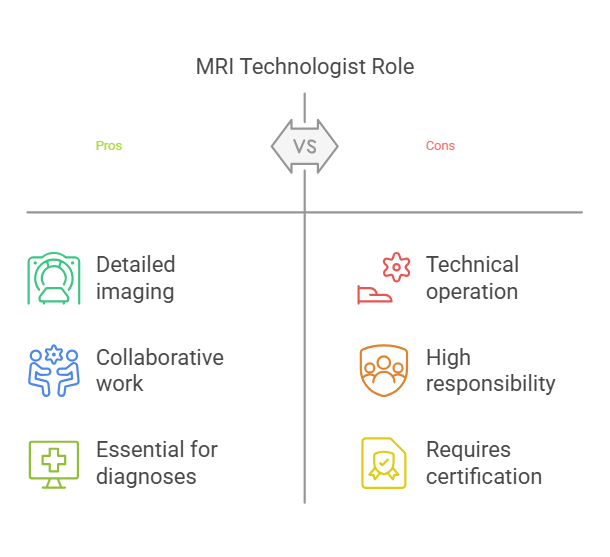Table of Contents
Togglehow to get an mri tech certification
how to get an mri tech certification Magnetic Resonance Imaging (MRI) has become an essential tool in diagnosing various medical conditions, from soft tissue injuries to neurological disorders. MRI technologists, or MRI techs, play a vital role in operating MRI machines and ensuring accurate diagnostic imaging. If you’re interested in pursuing a career as an MRI tech, obtaining certification is crucial for success. This article will guide you through the steps required to get an MRI tech certification, highlighting the necessary training, education, and exams involved.

1. Understand the Role of an MRI Tech
Before embarking on your journey to become an MRI tech, it’s essential to understand the role and responsibilities involved. MRI techs are responsible for preparing patients for MRI procedures, operating MRI machines, and ensuring the quality of the images produced. Additionally, MRI techs must maintain a safe and comfortable environment for patients, following all safety protocols to prevent risks related to the use of MRI machines.
2. Complete a Formal Education Program
The first step to becoming a certified MRI technologist is to complete a formal education program in radiologic technology. Most MRI techs have a background in radiology or a related field. You can pursue an associate’s degree in radiologic technology from an accredited institution. These programs typically take two years to complete and include coursework in anatomy, patient care, medical ethics, radiation safety, and imaging techniques.
3. Gain Experience as a Radiologic Technologist
While an MRI-specific program may be an option, many MRI techs start their careers as radiologic technologists (radiographers). To gain the necessary experience, many programs require students to undergo clinical training where they can work directly with patients and learn to operate imaging equipment under supervision. During this time, you’ll build foundational skills in patient care, diagnostic imaging, and equipment operation.
4. Specialize in MRI Technology
After completing a radiologic technology program, aspiring MRI techs can specialize in MRI technology by pursuing a certificate program. These programs are designed to provide the specialized knowledge and skills needed to operate MRI machines effectively. Certification programs typically last between six months to a year and include both classroom learning and hands-on clinical experience.
These programs will teach you about MRI safety, advanced imaging techniques, patient positioning, and how to manage various MRI machine settings to ensure clear, accurate results. Some programs may also offer continuing education courses for current radiologic technologists who wish to transition into MRI technology.
5. Pass the Certification Exam
Once you have completed an MRI tech training program, the next step is to pass a certification exam. In the United States, the American Registry of Radiologic Technologists (ARRT) offers a certification exam for MRI techs. The ARRT exam assesses your knowledge and proficiency in MRI techniques, patient care, safety protocols, and other essential areas.
The exam consists of multiple-choice questions and may include practical elements that test your ability to operate MRI equipment. To be eligible for the ARRT exam, you must complete an accredited MRI tech training program and meet the ARRT’s continuing education requirements.
6. Maintain Certification
Once you become certified, it’s important to stay up-to-date with the latest advancements in MRI technology. Most MRI tech certification programs, such as those offered by ARRT, require you to complete continuing education and renew your certification every two years. Staying current with technological advancements and best practices ensures that you provide the highest level of care to patients.
7. Consider Additional Specializations
While MRI certification qualifies you for many roles in the healthcare field, you may want to pursue additional certifications to enhance your career prospects. MRI techs can specialize further by pursuing certifications in areas like cardiac MRI, musculoskeletal MRI, or neuro MRI. Specializing in a particular area allows you to work in specific medical fields and broaden your job opportunities.
Conclusion
Becoming a certified MRI tech is a rewarding journey that involves formal education, practical training, and passing a certification exam. This certification can open the door to numerous career opportunities in healthcare, as MRI technology continues to grow in importance. If you’re dedicated to helping others through diagnostic imaging, this career path offers both personal and professional fulfillment.
Meta Description: Learn how to get your MRI tech certification with this step-by-step guide. Explore education requirements, training, exams, and tips for becoming a certified MRI technologist.
FAQs
1. How long does it take to become an MRI tech? Becoming an MRI tech typically takes two to three years, including education and clinical training.
2. Do I need a radiology degree before specializing in MRI? While a radiologic technology degree is not always required, it is highly recommended to gain foundational knowledge in radiology before specializing in MRI.
3. How much do MRI techs earn? MRI tech salaries vary depending on experience and location, but the average salary for an MRI tech is around $75,000 per year.
4. Can I work as an MRI tech without certification? Certification is often required by employers, especially for advanced imaging roles. Without certification, you may have limited job opportunities.
5. Are there any additional certifications for MRI techs? Yes, MRI techs can pursue additional certifications in specific areas like cardiac, neuro, or musculoskeletal MRI to specialize further.
